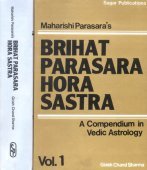Asceticism: 2 definitions
Introduction:
Asceticism means something in Hinduism, Sanskrit, Jainism, Prakrit. If you want to know the exact meaning, history, etymology or English translation of this term then check out the descriptions on this page. Add your comment or reference to a book if you want to contribute to this summary article.
In Hinduism
Yoga (school of philosophy)
Source: ORA: Amanaska (king of all yogas): A Critical Edition and Annotated Translation by Jason BirchAsceticism (Brahmanical and non-Brahmanical) is rejected by the Amanaska Yoga treatise.—The Amanaska replaced the graduated systems of yoga, usually consisting of various auxiliaries, with one technique called Śāmbhavī Mudrā and the practice of Samādhi. Indeed, the Amanaska’s rejection of the auxiliaries of Yoga, complex metaphysics and philosophical systems, mantras, Brahmanical and non-Brahmanical asceticism, the cremation-ground practices of the Kāpālikas and sect-identifying signs, distinguish it markedly from pre-tenth century CE Pātañjala and Tantric Yoga.

Yoga is originally considered a branch of Hindu philosophy (astika), but both ancient and modern Yoga combine the physical, mental and spiritual. Yoga teaches various physical techniques also known as āsanas (postures), used for various purposes (eg., meditation, contemplation, relaxation).
In Jainism
General definition (in Jainism)
Source: academia.edu: Tessitori Collection IAsceticism (in Sanskrit: tapa) refers to one of the “nine entities”, according to a manuscript dealing with “Śrīpāla story and virtues of Siddhacakra worship”, which is included in the collection of manuscripts at the ‘Vincenzo Joppi’ library, collected by Luigi Pio Tessitori during his visit to Rajasthan between 1914 and 1919.—The topic is the greatness of worship of the Siddhacakra containing the nine entities (navapada), i.e. Arhats, Siddhas, Ācāryas, Upādhyāyas, Sādhus along with correct faith, correct knowledge, correct conduct and asceticism. [...]. Talking of these entities implies telling the famous story of the leper king Śrīpāla and his faithful wife Mayaṇasundarī.

Jainism is an Indian religion of Dharma whose doctrine revolves around harmlessness (ahimsa) towards every living being. The two major branches (Digambara and Svetambara) of Jainism stimulate self-control (or, shramana, ‘self-reliance’) and spiritual development through a path of peace for the soul to progess to the ultimate goal.
See also (Relevant definitions)
Full-text (+261): Paramahamsya, Tapasya, Tapodhana, Ukkevatapa, Tapahsvarupa, Bahya, Adhyatmika, Bahyatapas, Atitapta, Bahyavishesha, Tapas, Shariratapa, Anupamatapa, Adhyatma, Adhyatmatapas, Suri, Antaranga, Aryasuri, Camatkara, Ashcarya.
Relevant text
Search found 127 books and stories containing Asceticism; (plurals include: Asceticisms). You can also click to the full overview containing English textual excerpts. Below are direct links for the most relevant articles:
The Devi Bhagavata Purana (by Swami Vijñanananda)
Chapter 12 - On the greatness in holding the Tripuṇḍra and Bhaṣma < [Book 11]
Chapter 5 - On the dialogues of Nara Nārāyaṇa < [Book 4]
Chapter 10 - On Śiva’s granting boons < [Book 1]
Brahma Sutras (Nimbarka commentary) (by Roma Bose)
Brahma-Sūtra 3.4.48 < [Adhikaraṇa 12 - Sūtras 46-48]
Brahma-Sūtra 3.4.46 < [Adhikaraṇa 12 - Sūtras 46-48]
Brahma-Sūtra 3.4.49 < [Adhikaraṇa 13 - Sūtra 49]
Mahabharata (English) (by Kisari Mohan Ganguli)
Section XLIII < [Sanatsujata Parva]
Section XLV < [Astika Parva]
Section CCLVII < [Ghosha-yatra Parva]
Manusmriti with the Commentary of Medhatithi (by Ganganatha Jha)
Verse 5.88 < [Section IX - Other forms of Impurity]
Verse 8.407 < [Section XLVIII - Laws relating to Civic Misdemeanours]
Verse 4.30 < [Section VII - Attending upon Guests]
Ramayana (by Manmatha Nath Dutt)
Chapter LXV < [Book 1 - Bāla-kāṇḍa]
Chapter LVII < [Book 1 - Bāla-kāṇḍa]
Chapter XXXI < [Book 1 - Bāla-kāṇḍa]
Ramayana of Valmiki (by Hari Prasad Shastri)
Chapter 74 - Narada’s Discourse < [Book 7 - Uttara-kanda]
Chapter 2 - The Birth of Vishravas < [Book 7 - Uttara-kanda]
Chapter 84 - The Story of Vritra < [Book 7 - Uttara-kanda]
Related products
